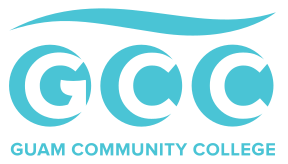Directory Information
Guam Community College procedures and the Family Educational Rights and Privacy Act (FERPA) prohibit the unauthorized release of confidential information about individual students. However, directory information is not considered to be confidential and may be published or otherwise released. Directory information includes name; addresses, including permanent, campus, local (off-campus), email, associated telephone numbers; date and place of birth; school or college; major and/or minor fields of study; degree sought; expected date of completion of degree requirements and graduation; degrees conferred (including dates of conferral); awards and honors (e.g., dean's list); full- or part-time enrollment status; dates of attendance; previous institutions attended; participation in officially recognized activities, and photographic or videotaped images of the student. A full list of information considered directory information is available on the Office of Admissions & Registration website or by contacting the office directly. Students may opt to have their directory information withheld. To exercise this option, the appropriate form must be obtained from Admissions & Registration, completed, and returned to that office. Once filed, this form remains in effect until withdrawn by the student in writing.
FERPA Notification of Student Rights
Guam Community College informs students of the Family Educational Rights and Privacy Act of 1974 (FERPA) which is designated to protect the privacy of student educational records. FERPA affords eligible students certain rights with respect to their education records. (An “eligible student” under FERPA is a student who is attending a postsecondary institution.) These rights include:
-
The right to review and inspect his or her own education records. An eligible student has the right to inspect and review the student’s education records within 45 days after the day GCC receives a request for access. Students who wish to review and inspect their education records must submit a written request to Admissions & Registration in person or via email at gcc.registrar@guamcc.edu.
-
The right to request an amendment of the education record. An eligible student has the right to seek amendment of the student’s education records that the student believes to be inaccurate, misleading, or otherwise in violation of the student’s privacy rights under FERPA.
- A student who wishes to ask the College to amend a record must submit a written request to Admissions & Registration in person or via email at gcc.registrar@guamcc.edu clearly identifying the part of the record that they wish to change, and specify why it is inaccurate or misleading. A proper request to correct a student education record must:
-
-
-
Be written addressed to the Registrar, Admissions & Registration;
-
Clearly identify the part of the record they want to be changed; and
-
Specify why the record is inaccurate or misleading.
-
-
- Upon receipt of a request for amendment, the College will make a determination within a reasonable time as to whether the proposed correction is accepted or rejected.
- If the College decides not to amend the record as requested by the student, the College will notify the student of the decision and advise the student of his or her right to a hearing regarding the request for amendment. Additional information regarding the hearing procedures will be provided to the student when notified of the right to a hearing.
NOTE: Any written request that does not include the required information will not be considered and the student will be notified that his/her request was not made properly. Students can resubmit a request once the request has been revised to include the required information listed above.
-
The right to provide written consent before personally identifiable information is disclosed, except when FERPA authorizes disclosure without consent. An eligible student has the right to provide written consent before the College discloses personally identifiable information (PII) also known as non-directory Information from the student’s education records, except to the extent that FERPA authorizes disclosure without consent (see below).
-
The right to file a complaint. An eligible student has the right to file a complaint with the U.S. Department of Education concerning alleged failures by Guam Community College to comply with the requirements of FERPA. The name and address of the Office that administers FERPA is:
Family Policy Compliance Office
Department of Education
400 Maryland Avenue, SW
Washington, DC 20202
When does FERPA permit disclosure of education records without student consent?
Generally, schools must have written permission from the eligible student in order to release any information from a student’s education record. However, FERPA allows schools to disclose PII from the education records without obtaining the prior written consent of an eligible student in situations described below:
To other College officials whom the College has determined to have “legitimate educational interests” including contractors, consultants, volunteers, or other parties to whom the College has outsourced institutional services or functions if certain conditions are met. (§99.31(a)(1))
-
- To officials of another College or University where the student seeks or intends to enroll, or where the student is already enrolled if the disclosure is for purposes related to the student’s enrollment or transfer. (§99.31(a)(2))
- When it is information the College has designated as “Directory Information” under §99.37. (§99.31(a)(11))
- To authorized authorities involved in an audit or evaluation of compliance with education programs, subject to the requirements of
§99.35, in connection with an audit or evaluation of Federal- or State-supported education programs, or for the enforcement of or compliance with Federal legal requirements that relate to those programs. These entities may make further disclosures of PII to outside entities that are designated by them as their authorized representatives to conduct any audit, evaluation, or enforcement or compliance activity on their behalf. (§§99.31(a)(3) and 99.35)
-
- In connection with financial aid for which the student has applied or which the student has received, if the information is necessary to determine eligibility for the aid, determine the amount of the aid, determine the conditions of the aid, or enforce the terms and conditions of the aid. (§99.31(a)(4))
- To certain state and local officials or authorities when authorized by state statute in certain cases. (§99.31(a)(5))
- To organizations conducting studies for, or on behalf of, the College, in order to: (a) develop, validate, or administer predictive tests; (b) administer student aid programs; or (c) improve instruction. (§99.31(a)(6))
- To accrediting organizations to carry out their accrediting functions. (§99.31(a)(7))
- To parents of an eligible student if the student is a dependent for IRS tax purposes. (§99.31(a)(8))
- To comply with a judicial order or lawfully issued subpoena. (§99.31(a)(9))
- To appropriate officials in connection with a health or safety emergency, subject to §99.36. (§99.31(a)(10))
- To a victim of an alleged perpetrator of a crime of violence or a non-forcible sex offense, subject to the requirements of §99.39. The disclosure may only include the final results of the disciplinary proceeding with respect to that alleged crime or offense, regardless of the finding. (§99.31(a)(13))
- To the general public, the final results of a disciplinary proceeding, subject to the requirements of §99.39, if the College determines the student is an alleged perpetrator of a crime of violence or non-forcible sex offense and the student has committed a violation of the College’s rules or policies with respect to the allegation made against him or her. (§99.31(a)(14))
- To parents of a student regarding the student’s violation of any Federal, State, or local law, or of any rule or policy of the College, governing the use or possession of alcohol or a controlled substance if the College determines the student committed a disciplinary violation and the student is under the age of 21. (§99.31(a)(15))
- The disclosure concerns sex offenders and other individuals required to register under section 17010 of the Violent Crime Control and Law Enforcement Act of 1994.
What is Directory Information?
Institutions may disclose a student’s “Directory Information” without his/her consent, and without violating FERPA if the student has not restricted his/her personal information. GCC considers the following to be “Directory Information”:
-
- Student’s name
- Home address
- State, Territory, or Country of residence
- Program(s) of study
- Dates of attendance
- Dates of admission
- Degrees, certificates, and awards granted
- Award dates for degrees or certificates
- Enrollment status (i.e., enrolled/active, future enrolled student, reentry, leave of absence, withdrawn)
- Honors or awards received
- Participation in activities officially recognized by GCC
What is the process to restrict the release of Directory Information?
Students who wish to restrict the release of Directory Information may submit a FERPA Hold request to Admissions & Registration either in person or via email at gcc.registrar@guamcc.edu.
Please note that this document provides only a summary of FERPA. For further information regarding FERPA or clarification regarding FERPA, refer to the act and its regulations, or contact Guam Community College’s Registrar/Compliance Officer. Call (671)735-5531, or email gcc.registrar@guamcc.edu.


